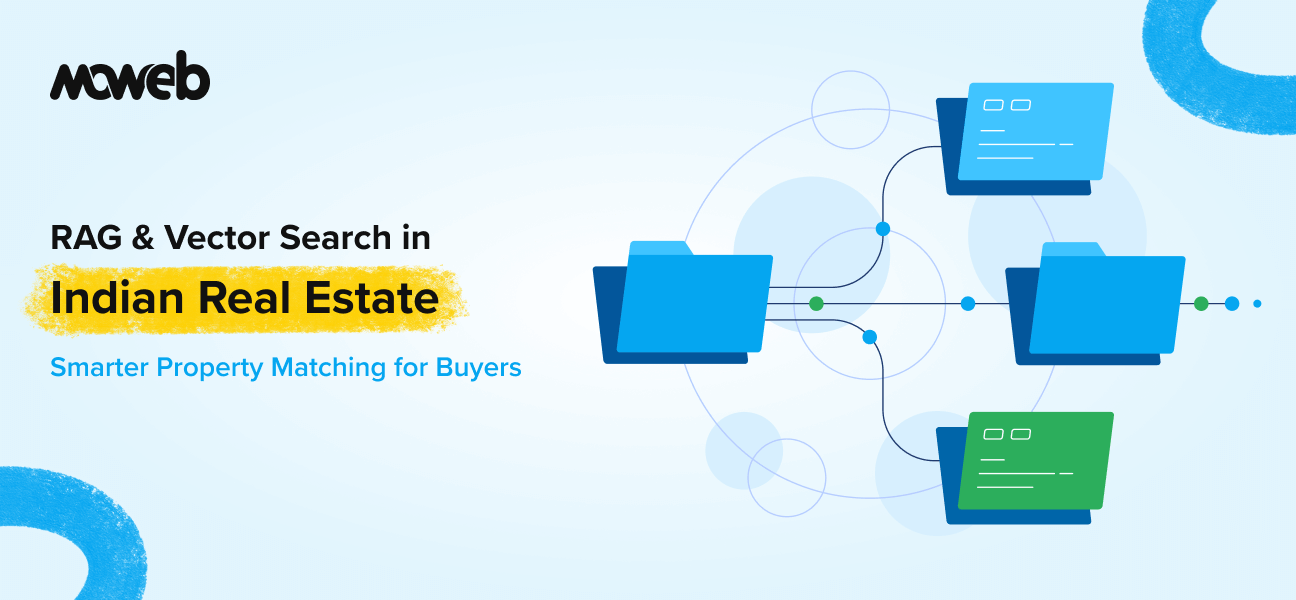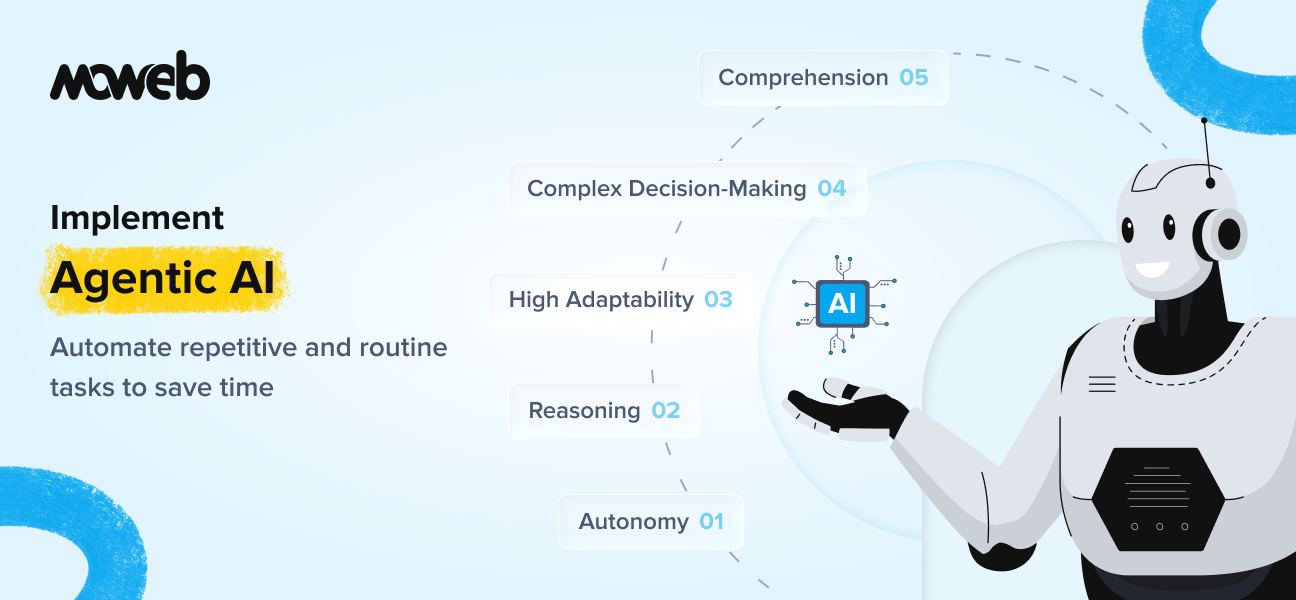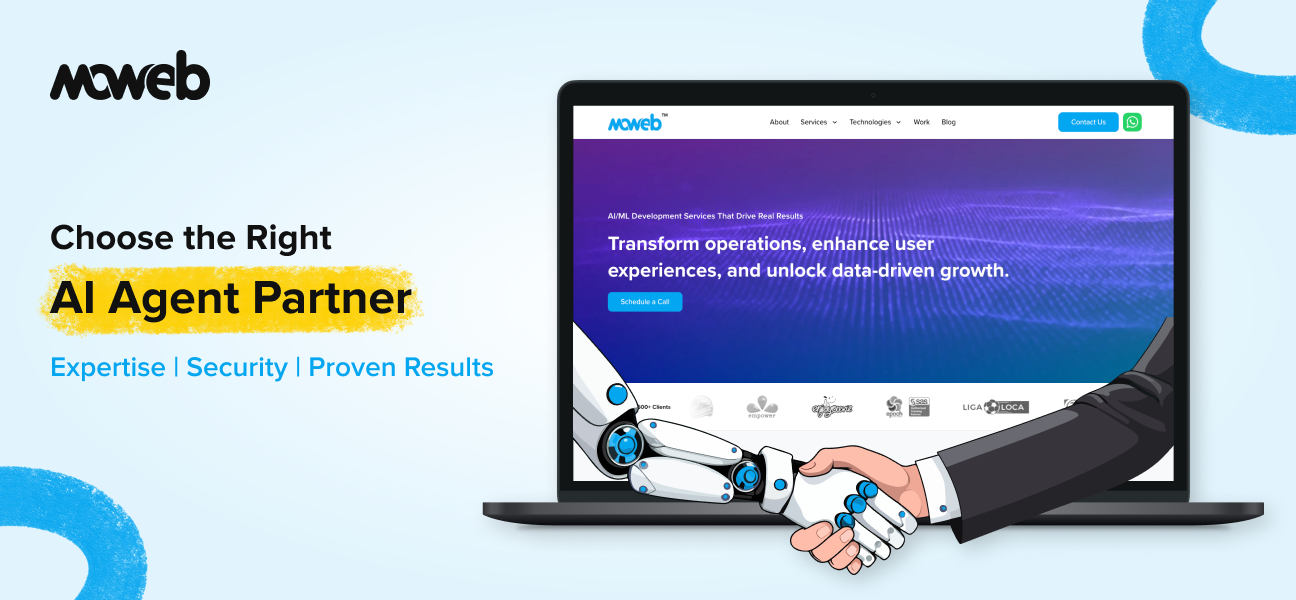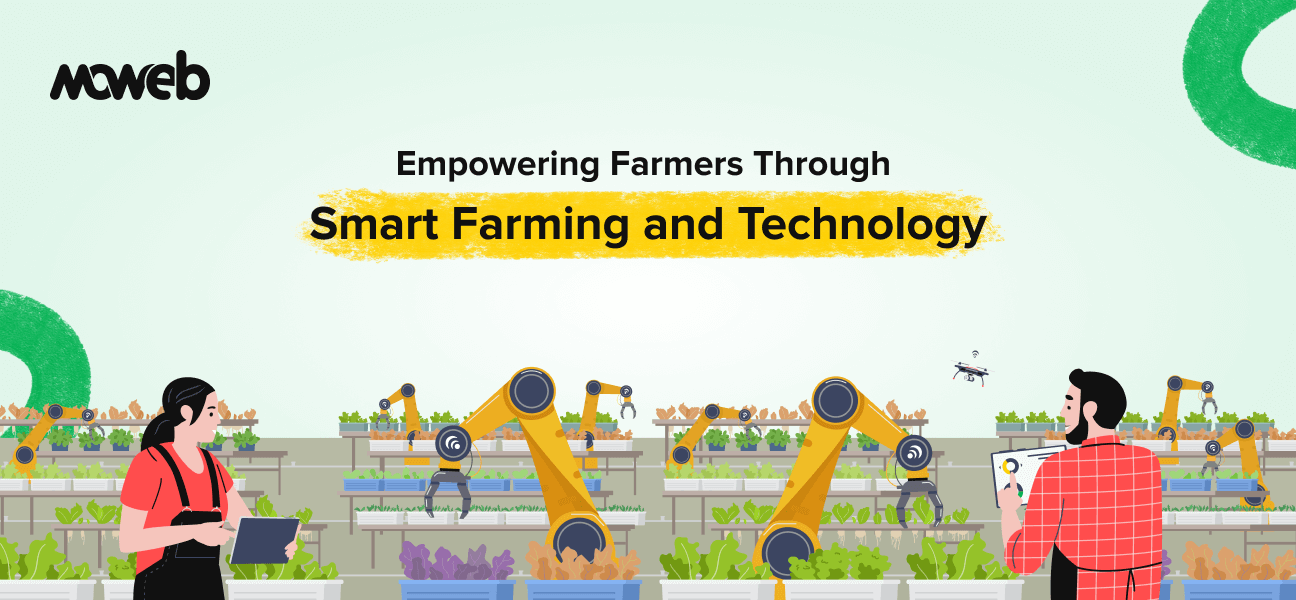
How Technology in Agriculture Continues to Empower Farmers
In today’s day and age, where markets are volatile and the global landscape is undergoing a massive shift, the modern day farmer is fighting a battle of his own. Starting from climate change to crucial resources like water and healthy soil becoming alarmingly scarce- farmers are facing threats to their very productivity.
Add to that the constant demand to produce more with less, and it’s clear: traditional farming methods, no matter how respected, simply can’t keep up with today’s complex agricultural challenges.
This is where technology in agriculture becomes essential, not just a nice-to-have. In practice, technology in agriculture begins with integrating data-driven tools, automation, and real-time connectivity into farming operations.
Interestingly, new tech is transforming traditional hurdles into opportunities, guiding farmers toward sustainable choices, and ultimately securing their long-term profitability. Let’s understand this better.
Why Empowerment is Crucial for Sustainable Agriculture
Whether you go to any village or any farm, you will see technology everywhere. But what does empowerment backed by technology even mean?
That’s not just a fancy word we throw around. It’s what truly happens when a farmer gets their land, knows it inside and out, when they completely trust the tools they’re using, and when they simply know what decisions to make and precisely why they’re making them.
This kind of empowerment leads to farming that is both productive and sustainable. When farmers truly understand their land and the tools available to them, they naturally make choices that support both their crops and the environment.
And this is backed by technology. Take a simple example. A smart sensor tells the farmer the soil is dry. The farmer turns on irrigation only when needed. Water saved. Power saved. Crop saved.
Now imagine this happening on thousands of farms. That’s not a small win. That’s a big shift.
Must-Read AI Insights : AI in Agriculture
Key Challenges in Modern Farming and Utilizing Technology in Agriculture
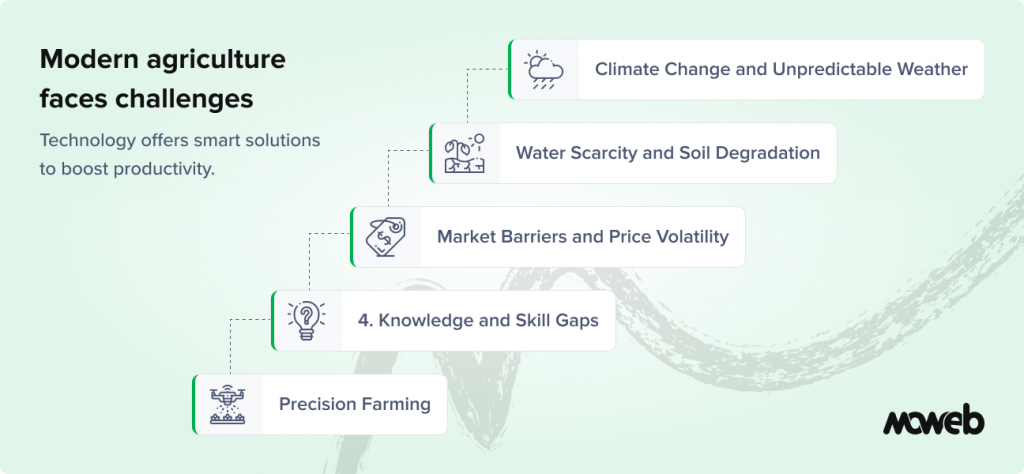
Before we talk about solutions, it’s important to step back and understand what farmers are actually dealing with.
1. Climate Change and Unpredictable Weather
There used to be a pattern. Farmers could look at the sky and make a plan. Now, that certainty is gone. The rain doesn’t come when it should. Or it floods the fields when it’s least expected. Some years it gets too hot too early. Other times, the cold stretches on. All of this throws the farming cycle off balance. You can’t grow properly if you don’t know when to begin.
2. Water Scarcity and Soil Degradation
Water is becoming harder to find. In some areas, it runs out before the season even ends. Add to that soil that’s been pushed too far — over-fertilized, overworked, and drying up. What you get is a field that just won’t give like it used to. It’s not laziness or lack of effort. The land is tired and it shows.
3. Market Barriers and Price Volatility
Farmers can do everything right, they prep the soil, manage pests, time their harvest and still face a market that works against them. Prices swing without warning. One week, they’re just enough. The next, they barely cover costs.
On one hand farmers seek help from digital platforms which are growing, but they’re not yet a level playing field. Access is uneven and buy-in takes time. And for many farmers, these tools still feel out of reach – either too complex, or not built with their workflows in mind.
In the end, farmers carry the risk. But too often, they don’t control the reward.
4. Knowledge and Skill Gaps
Agricultural tech has come a long way. From satellite imagery to in-field sensors, the techstack is impressive. The modern farmer is open to adopting new systems and modernization. But they’re often left to figure things out on their own. Training is inconsistent. Interfaces are not intuitive. And support rarely comes in a way that fits the realities of a farm day.
When tools don’t speak the farmer’s language literally or operationally, they get left behind. Not because the farmer is unwilling, but because the system didn’t meet them halfway.
5. Precision Farming
Precision in agriculture has been helping farmers know exactly what their crops need and where. Modern tech is bringing in an evolution where we are seeing drone-based field maps giving clear insights into soil health, crop growth, and areas that need attention. This in turn allows farmers to use fertilizers, water, and pesticides only where needed, reducing waste and improving output.
Must-Read AI Insights: How AI Is Transforming Supply Chain Management?
How Technology in Agriculture is Transforming the Landscape
1. Internet of Things (IoT) and Connectivity
Today’s farms are connected like never before. There’s sensors in the soil tracking moisture, pH levels, and weather conditions in real time. The next step is sending this data straight to the farmer’s device, helping them decide when to irrigate, when to apply nutrients, and when to hold back. This in practice is remote farming made simpler and far more practical than it ever was.
2. Mobile and Digital Solutions
Smartphones have become powerful farming tools and applications now offer everything from hyper-local weather updates to crop disease detection through a simple photo. Some time back, this kind of support was once available only through agronomists, but now it’s literally in every farmer’s pocket. This is especially transformative for small and mid-sized farms in remote regions.
3. Farm Management Software and AI
Managing a farm is like running a business, and modern software helps farmers do just that. These platforms track sowing schedules, inventory, expenses, and yields. When one adds AI and modern tech to the mix, they can even predict risks and recommend robust next-steps. Revolutionize Your Farm with Smarter AI development company
4. Automation and Agriculture Robotics
Tasks that once took hours of manual labor are now being done by machines. Robotic weeders, automated harvesters, and drones for spraying are reducing the need for intensive fieldwork. This not only saves time but also makes farming more consistent and scalable. It’s especially useful in areas facing labor shortages.
5. Supply Chain Technology
Consumers today want to know where their food comes from and technology makes that possible. Think QR-coded packaging and blockchain-backed records. These advancements help farmers to gain full traceability from field to fork. The end result? Stronger trust with buyers and a better opportunity to give farmers the leverage to demand better prices.
6. Sustainable Agri-Tech Innovations
New innovations are helping farmers grow more without harming the planet. Some good examples are solar-powered irrigation systems which cut down on diesel use. Or bio-based fertilizers that help to reduce chemical dependency. These tools prove that sustainability and productivity can go hand in hand.


Want to Explore AI in Agriculture Without the Guesswork?
See how an AI and ML Development Company can help you turn raw farm data into real-time decisions.
The Synergy: How Empowered Farmers Drive Sustainability
The bottom stays the same. its not that technology solves problems on its own. It’s the farmer who makes the real difference.
When farmers feel confident, connected, and supported, they don’t just adapt to change but they actually lead it. They use technology with purpose and start making choices that benefit both their harvest and the environment. This is also attributed by technology that’s not just available, butaccessible.
When we add financial stability to agricultural practices, farmers get breathing room to actually think of long-term goals and not just worry about their day-to-day. They have a better scope to invest in practices that protect their land, rather than just chasing short-term output.
Think of this – a smallholder using precision irrigation. Leading to water usage dropping by 30 percent. Yields improving, and the best part? Land that’s healthy. This is made possible by sustainability in motion led by the farmer.
Conclusion: Technology in Agriculture is a Strategic Imperative
Technology in agriculture is no longer a luxury but the very foundation of future-ready farming that’s sustainable at the core. Here’s how that looks like:
- Higher yields with lower environmental costs.
- Smarter, faster decisions based on real-time,accessible data.
- Stronger local economies and more resilient global supply chains.
And ultimately, these advancements lead to a world where farming is sustainable in the holistic sense of the word. Not just in ecological terms, but economically and socially. This is the promise of farming technology: to restore balance between nature and growth, and to put power back into the hands of those who feed the world.
Now future-proof your farming – start your digital transformation today. Contact a trusted agriculture software development company to bring your vision to life.
FAQS
How is technology in agriculture empowering farmers today?
Modern day technology is helping farmers shift from reactive methods to being more proactive. With tools like real-time weather alerts, sensor-based irrigation, drone monitoring, and mobile-based advisory apps, farmers are no longer operating in the dark. They can make timely and well-informed decisions that reduce risk and improve profitability.
What is sustainable agriculture, and how does technology support it?
Sustainable agriculture is about growing food in ways that protect the environment, support livelihoods, and ensure long-term productivity. Technology supports this by helping farmers use fewer chemicals, conserve water, rotate crops more effectively, and track the impact of their practices. On the other hand, tools like AI models and IoT systems make sustainability measurable and not just a theory.
What are the benefits of smart farming technologies?
In essence, smart farming technologies take the guesswork out of farming. They allow for targeted watering, efficient fertilization, early pest detection, and accurate yield predictions. The end result? Higher profits, less waste, and a lighter environmental footprint overall. This isn’t just profitable but also sustainable.
What are the top 5 emerging technologies in agriculture?
These are some of the key technologies shaping modern agriculture.
- Precision agriculture
- IoT-based monitoring,
- AI and ML forecasting tools,
- Blockchain in the supply chain and even
- Robotics and drones
Are there affordable tech solutions for small-scale farmers?
Yes. There are affordable mobile apps for weather and advisory, community-based sensor kits, solar-powered irrigation pumps, and even farmer co-op platforms which are easily accessible and don’t break the bank. Moreover, many governments and agri-tech startups are also providing subsidies or freemium access to keep these solutions within reach.
Found this post insightful? Don’t forget to share it with your network!



